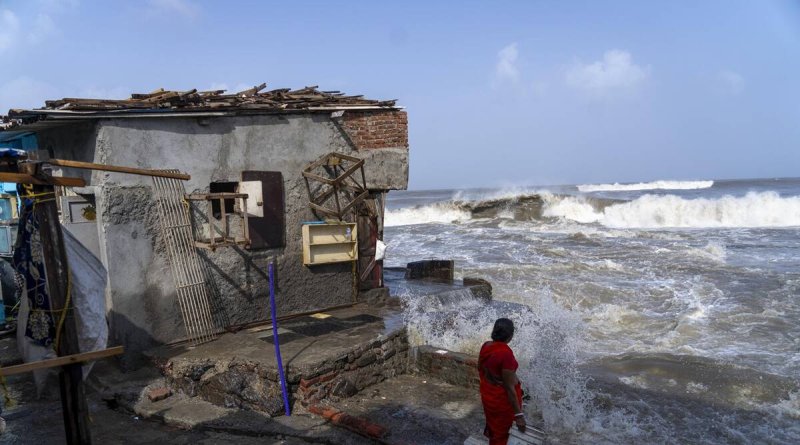TRENDING TAGS :
Cyclones Ravage Coastal Areas in the Aftermath of the Covid-19 Outbreak
Devastating cyclones compound the woes of communities recovering from the pandemic's impact.
In the wake of the global Covid-19 pandemic, coastal regions across the world are grappling with a new and formidable challenge – the onslaught of devastating cyclones. These natural disasters, which have become more frequent and severe in recent years, are compounding the already overwhelming struggle for communities trying to recover from the effects of the pandemic.
As countries gradually emerge from the grip of the health crisis, many coastal areas find themselves ill-prepared to confront the wrath of these powerful cyclonic storms. The disruptions caused by the pandemic have strained resources, hampered infrastructure development, and weakened disaster response mechanisms, leaving communities vulnerable to the destructive forces of nature.
One such instance occurred recently in the coastal regions of Southeast Asia, where a cyclone of unprecedented strength made landfall, causing widespread devastation. The region, still grappling with the economic consequences of lockdowns and the strain on healthcare systems, was ill-equipped to handle the double blow of the pandemic and the cyclone. Rescue and relief operations were stretched thin, exacerbating the challenges faced by the affected population.
Experts point to climate change as a contributing factor to the intensification and increased frequency of cyclones in recent years. Rising sea temperatures, melting ice caps, and altered weather patterns have created more favorable conditions for the formation of powerful storms. The global community's failure to curb greenhouse gas emissions and mitigate climate change has amplified the destructive potential of cyclones, posing a grave threat to vulnerable coastal communities.
The impact of cyclones after the Covid-19 outbreak is felt not only in terms of immediate destruction but also in the long-term consequences. In many coastal regions, livelihoods heavily dependent on fishing, agriculture, and tourism have been decimated by the dual blows of the pandemic and cyclones. The road to recovery becomes arduous, as communities struggle to rebuild their lives, homes, and businesses while simultaneously addressing the persisting challenges posed by the pandemic.
Addressing the heightened risk posed by cyclones in the aftermath of the Covid-19 outbreak requires urgent action and comprehensive planning. Governments, international organizations, and communities must collaborate to bolster disaster preparedness and response systems. This includes investing in early warning systems, improving infrastructure resilience, enhancing coastal protection measures, and providing adequate resources for relief and rehabilitation.
Furthermore, efforts to mitigate climate change and reduce greenhouse gas emissions must be intensified to limit the long-term impacts of cyclones and other extreme weather events. This involves transitioning to cleaner energy sources, promoting sustainable practices, and supporting climate adaptation and resilience programs.
The convergence of the Covid-19 pandemic and cyclones has underscored the interconnectedness of global challenges and the need for a coordinated response. It serves as a stark reminder that addressing one crisis alone is insufficient; holistic and collaborative approaches are imperative to build resilient communities capable of withstanding multiple shocks.
As communities worldwide grapple with the aftermath of the Covid-19 outbreak, the battle against climate change and the increasing threat of cyclones will require unwavering commitment and collective action. Only by working together can we hope to protect vulnerable populations, build resilience, and create a more sustainable and secure future for all.



